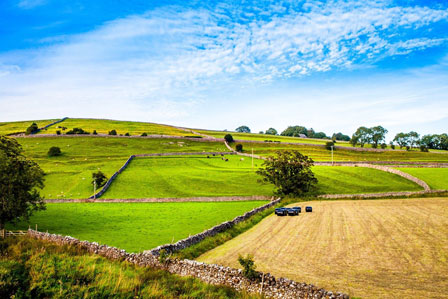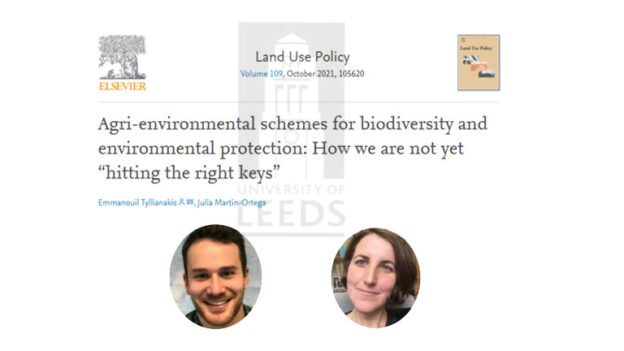Emmanouil Tyllianakis and Julia Martin-Ortega, from the School of Earth and Environment, Sustainability Research Institute, at the University of Leeds have written a magnificent publication in the scientific journal “Land Use Policy” (Editorial Elsevier) that we want to recommend to you.
This research article systematically reviews and quantifies the academic literature that researches the factors that influence farmers’ enrolment in agri-environment schemes (AES). A long-time staple of EU policy, AES are considered as means to provide environmental and biodiversity benefits to society by compensating farmers to adopt sustainable agricultural practices and set land aside from farming. The main take away message is this: farmers’ are, in principle, willing to enrol in AES to deliver biodiversity and environmental features, but we are not yet hitting the right keys on how to best match farmers preferences. A significant leap forward would not simply require an increased quantity of primary studies, but a deeper reflexion on how the complexity of farmers’ preferences is best captured in the design of policy instruments that have to both share common features while being adaptable to context dependent characteristics at the landscape level
Objective
In their 35-year presence in EU policy, research has identified several characteristics of AES that can influence land managers’ acceptance, such as the requirement of monitoring of results achieve, the availability of free scientific advice to farmers and the option for AES that run more than 5 years. These factors, along with farm and sociodemographic characteristics are examined in this work in terms of their influence on the monetary compensation farmers ask to enrol in AES.

Methodology
This study employs the meta-analysis method, that allows to bring together findings from similar studies across different years and geographical locations. Meta-regressions were also used to quantify the impact of such variables on the compensation EU farmers ask to enrol in AES.
Results
Results come from around 25 studies from across the EU over a 10-year period and had significant variation from study to study. The mean compensation EU farmers ask for enrolling in AES is estimated to be around 327 Euros, per hectare. Factors such as farmer income, offering of scientific advice and support to farmers during their AES contract are found to incentivise adoption. As such, the authors suggest that tailored AES policies are the way forward, especially to incentivise managers of small land holdings and achieve landscape-wide environmental improvements.
